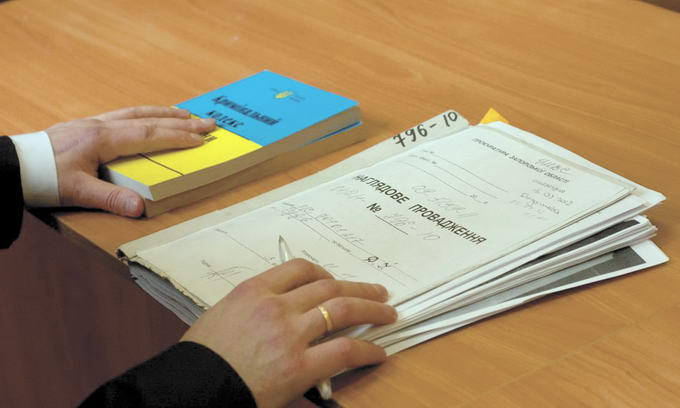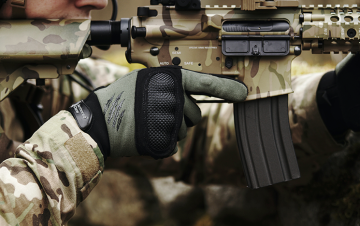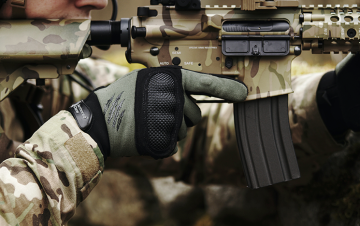I am Mariya Borevich, your personal lawyer. My primary goal is to help clients find optimal solutions to current legal issues, ensuring reliable protection of their interests. I specialize in family, civil, and military law, which allows me to effectively handle a variety of situations and cases. In family law, I provide support in resolving issues related to divorce, property division, establishing and challenging parental rights, alimony, and child custody. I understand that these matters are often emotionally complex, so I always strive to find the most delicate and fair solutions for all parties involved. In civil law, I assist in settling disputes related to contracts, property rights, compensation for damages, inheritance, and other issues concerning the protection of personal and property interests. Special attention is given to military law — supporting servicemen, protecting their rights and interests related to military service, social guarantees, and legal disputes. This area requires deep knowledge and understanding of the specifics of military service and the legislation regulating it.
A criminal proceeding is a process carried out to investigate, substantiate and try a crime with the aim of bringing the guilty to justice and restoring justice. It includes various stages, starting from the registration of the crime and ending with the passing of a court decision.
The main stages of criminal proceedings
- Commencement of proceedings: criminal proceedings begin with the filing of a complaint about a crime or the discovery by an investigator of a fact that indicates the commission of a crime.
- Pretrial investigation: at this stage, evidence is collected, interrogations, searches, and examinations are conducted. This is an important part of the process, during which investigators and prosecutors establish the circumstances of the crime.
- Confirmation of the charge: if during the pre-trial investigation the evidence collected points to the person's guilt, the prosecutor's office sends the case to court with an indictment.
- Trial: the court examines the evidence, listens to the parties and witnesses. Based on the evidence presented, the court makes a decision — to find a person guilty or to acquit him.
- Appealing the decision: after the verdict, the parties have the right to appeal the decision in an appellate or cassation procedure.
The main purpose of criminal proceedings is to identify guilty persons, ensure fair punishment and protect the rights of victims. The proceedings are also designed to protect the rights of suspects and accused persons, ensuring the objectivity and legality of the process.
Question
When is the opening of criminal proceedings necessary?
Answer
The opening of criminal proceedings is necessary in any case when there are sufficient grounds to believe that a crime has been committed.
This happens in the following situations:
- Reporting a crime: If a citizen, legal entity or other interested party reports a crime (such as theft, violence or fraud), the police or prosecutors are required to register it and start proceedings.
- Detection of signs of a crime by law enforcement officers: if during patrols, investigative actions or operative work, police officers or prosecutors detect signs of a crime, they can also initiate criminal proceedings.
- Statement of the victim or witness: in cases where the victim or witness turns to law enforcement agencies with information about the crime, this becomes the basis for opening proceedings.
- Discovery of crimes during other investigations: sometimes during the investigation of other cases, investigators may find evidence of new crimes, which are also registered as separate criminal proceedings.
- Court decision: if the court detects signs of a crime during the consideration of administrative or other cases, it can hand over materials to law enforcement agencies for the opening of proceedings.
After the opening of criminal proceedings, investigators and prosecutors begin a pre-trial investigation, which includes the collection of evidence, conducting examinations, questioning witnesses and suspects. Appealing the refusal to open criminal proceedings is a procedure that allows the applicant to appeal to higher authorities to review the decision of the investigator or prosecutor, if a decision was made to refuse to open criminal proceedings.
The procedure for appealing the refusal to open criminal proceedings:
- Appeal: The applicant or his representative (for example, a lawyer) can appeal the refusal decision to the investigating judge. This is done in the court at the place of registration of the pretrial investigation body that made the decision.
- Deadlines for submitting a complaint: usually, a complaint is filed within 10 days from the moment of receiving a copy of the refusal decision. However, in certain cases, the deadlines may be different, so it is better to contact a lawyer to check the possibility of filing a complaint after the deadline.
- Justification of the complaint: in the complaint, it is necessary to indicate the reasons for disagreement with the refusal and indicate the evidence or other circumstances that justify the opening of criminal proceedings.
- Hearing of the complaint: The investigating judge hears the complaint in a court hearing, where the applicant or his lawyer can present their arguments. The judge has the right to cancel the refusal decision and oblige the pre-trial investigation body to initiate criminal proceedings.
- Court decision: if the court cancels the decision on refusal, the pre-trial investigation body is obliged to initiate criminal proceedings and carry out an investigation of the case.
The military criminal lawyer services in criminal cases when appealing the refusal to open criminal proceedings are important for the protection of citizens' rights, especially in cases where the actions or decisions of the TCC and SP, command or other circumstances caused damage to a serviceman or his relatives. An appeal may be required if the applicant believes that law enforcement has wrongfully refused to investigate without finding sufficient evidence or evidence.
How military lawyer assistance can help with an appeal:
- Analysis of the refusal, military lawyer consultation: the lawyer will review the reasons for the refusal, assess its legality and possible errors that could have influenced such a decision.
- Drafting of a complaint, military law lawyer: a lawyer in military criminal cases will prepare a reasoned complaint against the refusal to open proceedings. This complaint is submitted to a higher prosecutor's office or to a court.
- Search for additional evidence military lawyers: if the refusal is justified by a lack of evidence, the lawyer will help to collect additional materials, testimony or expertise.
- Representation in court: in case of filing a complaint in court, a lawyer can represent the interests of a serviceman or his family, protecting their rights during the review of the complaint.
The advantages of contacting a lawyer in the cases of criminal and military lawyer of the legal marketplace "Consultant" can help:
Experience in military matters: specialization in military matters allows a lawyer to better understand the specifics of military service and criminal proceedings related to it.
Promptness: a lawyer will help to respond quickly to a refusal to minimize the risk of losing important evidence.
Legal support at all stages: from the initial consultation to representation in court, the lawyer for a military man will provide comprehensive protection of the client's rights.
In general, military lawyer services are a valuable partner in ensuring that legal rights are respected in the appeal process of the denial of criminal proceedings and helping to ensure that the case is properly investigated.
Appealing a refusal is an important rights protection mechanism that ensures access to justice in cases where there are grounds for criminal proceedings. A military criminal lawyer and military cases represents the interests of his client, ensures the protection of his rights and helps to gather evidence in his favor. A military lawyer can participate in all stages of proceedings — from pre-trial investigation to appeal and cassation, which significantly increases the chances of a fair trial.
































